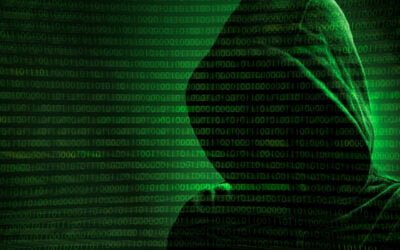Have you ever wondered if hacking can be a legitimate career path? Well, the answer might surprise you. Hacking, when approached with good intent and used for ethical purposes, can indeed be a profession worth exploring. In this article, I will delve into the world of ethical hacking and discuss how individuals can pursue a career in this fascinating field.
Key Takeaways:
- Ethical hacking involves using hacking techniques for good and serving a greater purpose.
- Building a strong skillset and understanding different types of hacking are essential for becoming an ethical hacker.
- Training programs and certifications can enhance your credibility as an ethical hacker.
- White hat hackers engage in ethical hacking, while black hat hackers engage in malicious activities.
- Essential skills include programming knowledge, network and security understanding, and problem-solving abilities.
Types of Hackers and Their Roles
When it comes to hacking, it is essential to understand that there are different types of hackers, each with their own set of roles and motivations. These hackers can be broadly classified into three categories: white hat hackers, black hat hackers, and grey hat hackers.
White hat hackers, also known as ethical hackers, use their skills for good. They are employed by organizations to identify vulnerabilities in computer systems, networks, and applications, and then provide recommendations to enhance security. White hat hackers play a crucial role in preventing cyber attacks and protecting sensitive data.
On the other hand, black hat hackers engage in illegal activities, often with malicious intent. They exploit vulnerabilities to gain unauthorized access to systems, steal sensitive information, or cause harm to individuals or organizations. Black hat hackers are responsible for cybercrime and pose a significant threat to cybersecurity.
Lastly, there are grey hat hackers who fall somewhere in between. They may engage in hacking activities without permission but with the intention of exposing vulnerabilities and helping organizations improve their security. While their actions may not be strictly legal, grey hat hackers aim to promote cybersecurity and often disclose their findings to the affected parties.
| Type of Hacker | Role |
|---|---|
| White Hat Hackers | Ethical hackers who identify vulnerabilities and strengthen security |
| Black Hat Hackers | Engage in illegal hacking and malicious activities |
| Grey Hat Hackers | Fall between ethical and illegal hacking, aiming to expose vulnerabilities |
Understanding the different types of hackers is crucial in the field of cybersecurity. It helps organizations identify the potential risks they face and take appropriate measures to protect themselves. Aspiring ethical hackers can learn from both the positive and negative aspects of hacking to make a positive impact on cybersecurity.
Essential Skills for Ethical Hackers
Aspiring ethical hackers need to possess a wide range of skills to succeed in their profession. These skills go beyond technical knowledge and extend to problem-solving abilities and effective communication. Here are some essential skills required to excel as an ethical hacker:
- Technical Proficiency: Ethical hackers must have a solid foundation in programming languages such as HTML, ASP, C/C++, Python, and Java. They should also be familiar with operating systems like Windows, UNIX, LINUX, and IOS.
- Network and Security Knowledge: A comprehensive understanding of computer networks and cybersecurity concepts is crucial. Ethical hackers should be well-versed in virtual private networks (VPNs), firewalls, cryptography, and different types of cyber-attacks.
- Problem-Solving Skills: Ethical hackers encounter complex challenges in their work, requiring strong problem-solving abilities. They need to identify vulnerabilities, analyze data breaches, and develop effective security solutions.
- Ethical Mindset: Ethical hackers must possess a strong ethical compass and a commitment to using their skills for positive purposes. They should prioritize the protection of data and respect privacy laws and regulations.
- Continuous Learning: The field of cybersecurity is constantly evolving, and ethical hackers need to stay updated with the latest industry trends and technological advancements. Continuous learning through books, online courses, and practical experience is essential.
By mastering these skills, ethical hackers can effectively navigate the rapidly changing landscape of cybersecurity and contribute to creating a safer digital environment.
“The key to success in ethical hacking lies in a combination of technical expertise, problem-solving skills, and a strong ethical mindset. Being able to think like a hacker is essential for identifying vulnerabilities and developing robust security measures. Additionally, continuous learning and staying up-to-date with the latest industry trends are crucial for maintaining a competitive edge in this ever-evolving field.”
| Skill | Description |
|---|---|
| Technical Proficiency | Strong knowledge of programming languages (HTML, ASP, C/C++, Python, Java) and operating systems (Windows, UNIX, LINUX, IOS). |
| Network and Security Knowledge | Comprehensive understanding of computer networks, virtual private networks (VPNs), cryptography, firewalls, and various types of cyber-attacks. |
| Problem-Solving Skills | Ability to identify vulnerabilities, analyze data breaches, and develop effective security solutions. |
| Ethical Mindset | Strong ethical compass and commitment to using hacking skills for positive purposes, prioritizing data protection and privacy regulations. |
| Continuous Learning | Adaptability to the ever-changing cybersecurity landscape through continuous learning, staying updated with industry trends, and acquiring new knowledge and skills. |
The Importance of Network and Security Knowledge
When it comes to pursuing a career in ethical hacking, having a thorough understanding of computer networks and cybersecurity concepts is vital. Strong knowledge of network security allows ethical hackers to identify vulnerabilities and implement robust measures to protect against potential threats.
Computer networks serve as the backbone of modern technology, enabling the seamless transfer of data between devices and systems. Understanding the intricacies of how these networks operate is essential for ethical hackers to effectively assess and secure them.
Cybersecurity concepts encompass a wide range of topics, including encryption, virtual private networks (VPNs), firewalls, and various types of cyber-attacks. Ethical hackers must possess comprehensive knowledge in these areas to effectively defend against potential breaches and safeguard sensitive information.
| Computer Networks | Cybersecurity Concepts |
|---|---|
| Understanding network protocols and architectures | Knowledge of encryption techniques and algorithms |
| Configuring routers, switches, and other network devices | Familiarity with virtual private networks (VPNs) |
| Identifying network vulnerabilities and misconfigurations | Implementing firewalls to protect against unauthorized access |
| Securing wireless networks against potential attacks | Recognizing different types of cyber threats, such as malware and phishing |
Gaining expertise in computer networks and cybersecurity concepts can be achieved through various means. Pursuing formal education in computer science, information technology, or cybersecurity-related fields can provide a solid foundation. Additionally, enrolling in cybersecurity courses, attending workshops, and keeping up with industry publications can help individuals stay abreast of the latest developments and best practices in the field.
With the ever-increasing reliance on technology and the rising threat landscape, ethical hackers equipped with comprehensive network and security knowledge play a crucial role in safeguarding digital environments and protecting sensitive information from cyber threats.
Increasing Demand for Ethical Hackers

In today’s digital landscape, the demand for skilled ethical hackers is skyrocketing. With the constant threat of cyberattacks and the need to protect sensitive information, organizations across industries are investing heavily in cybersecurity strategies. As a result, the job prospects for ethical hackers have never been better.
Companies understand the importance of proactively defending their digital assets and are willing to pay top dollar for professionals who can keep their data safe. Ethical hackers play a crucial role in identifying vulnerabilities, conducting penetration tests, and advising on robust security measures. Their expertise is invaluable in helping organizations stay one step ahead of cybercriminals.
With data breaches and other cybercrimes on the rise, the demand for ethical hackers is expected to continue growing in the coming years. As technology advances and new threats emerge, the need for skilled professionals who can protect digital systems will only increase. This presents a significant opportunity for those considering a career in ethical hacking.
Job Prospects in Ethical Hacking
The job prospects for ethical hackers are diverse and abundant. Professionals in this field can find employment opportunities in various sectors, including finance, healthcare, government, and technology. They can work as independent consultants, in-house experts, or as part of specialized cybersecurity teams.
In terms of job roles, ethical hackers can pursue positions such as security analyst, penetration tester, vulnerability assessor, cybersecurity consultant, or even Chief Information Security Officer (CISO). The range of opportunities allows individuals to specialize in specific areas of cybersecurity, such as web application security, mobile security, cloud security, or IoT security.
Cybersecurity Strategy Is Key
As organizations recognize the critical importance of cybersecurity, they are investing in robust strategies to protect their digital assets. Ethical hackers are an integral part of these strategies, as they provide insights into vulnerabilities and help build more resilient systems. By exposing weaknesses through controlled hacking attempts, ethical hackers contribute to the overall cybersecurity posture of organizations.
Having a strong cybersecurity strategy not only safeguards sensitive data and prevents financial losses but also protects a company’s reputation. Organizations that prioritize cybersecurity are seen as trustworthy and reliable, giving them a competitive advantage in the market. Ethical hackers play a vital role in creating and maintaining robust cybersecurity strategies that align with business goals and industry regulations.
As the digital world continues to expand, the demand for ethical hackers will only grow. Organizations need experts who can protect their networks, systems, and data from cyber threats. Ethical hackers have the opportunity to contribute to a safer and more secure digital environment while enjoying a rewarding and well-compensated career in the field.
Specializations in Ethical Hacking

As the field of ethical hacking continues to grow, professionals have the opportunity to specialize in various areas of cybersecurity. These specializations allow individuals to focus their expertise and play a crucial role in protecting organizations from cyber threats. Here are some prominent specializations in ethical hacking:
- Web Application Security: With the increasing reliance on web applications, securing them against vulnerabilities is essential. Ethical hackers specializing in web application security focus on identifying and addressing weaknesses in web-based systems, ensuring that they are robust against attacks.
- Mobile Security: As mobile devices become an integral part of our lives, securing them from malicious activities is crucial. Specialists in mobile security focus on understanding the unique challenges and vulnerabilities associated with mobile platforms, ensuring the safety of sensitive information stored on smartphones and tablets.
- Cloud Security: With the widespread adoption of cloud computing, protecting cloud-based systems and data has become paramount. Ethical hackers specializing in cloud security focus on evaluating the security measures of cloud platforms and implementing strategies to safeguard against unauthorized access and data breaches.
- IoT Security: The Internet of Things (IoT) has revolutionized various industries, but it also presents security challenges. Ethical hackers specializing in IoT security focus on identifying vulnerabilities in connected devices and networks, ensuring that IoT ecosystems are secure and protected from cyber threats.
By pursuing a specialization in ethical hacking, professionals can enhance their expertise in a specific area and become highly sought after for their specialized knowledge. These specializations align with the growing reliance on web applications, mobile devices, cloud computing, and IoT, making them highly relevant in today’s digital landscape.
Specializing in a specific area of ethical hacking not only allows professionals to deepen their knowledge and skills but also provides them with a competitive edge in the job market. Organizations are increasingly seeking experts who can address the specific challenges associated with different cybersecurity domains, making specialized ethical hackers invaluable assets.
Table: Ethical Hacking Specializations
| Specialization | Description |
|---|---|
| Web Application Security | Focuses on securing web-based systems and applications against vulnerabilities. |
| Mobile Security | Specializes in securing mobile platforms, protecting sensitive information on smartphones and tablets. |
| Cloud Security | Evaluates and implements security measures for cloud platforms to safeguard data and prevent unauthorized access. |
| IoT Security | Identifies vulnerabilities in connected devices and networks within IoT ecosystems, ensuring their security. |
As technology evolves, the field of ethical hacking will continue to expand, creating new specializations and opportunities for professionals. By staying up-to-date with the latest trends and continuously improving their skills, ethical hackers can make significant contributions to cybersecurity and forge successful careers in their chosen specialization.
Ethical Hacking in Critical Infrastructure Protection
As our critical infrastructure becomes more digitized and interconnected, the need for robust cybersecurity measures has never been greater. Ethical hackers play a crucial role in protecting critical infrastructure, such as power grids, transportation systems, and healthcare networks, from malicious attacks. By identifying vulnerabilities and conducting penetration tests, ethical hackers help ensure the security and integrity of these essential systems.
One of the key challenges in securing critical infrastructure is the ever-evolving nature of cyber threats. Hackers are constantly developing new techniques and strategies to exploit vulnerabilities in these systems. Ethical hackers must stay one step ahead by continuously learning and staying updated on the latest industry trends and security technologies.
“The protection of critical infrastructure is of utmost importance, as it directly impacts public safety and national security. Ethical hackers bring their unique skill set to the table, helping to safeguard these vital systems and prevent potential disasters.” – John Smith, Cybersecurity Expert
Working in critical infrastructure protection requires a deep understanding of the specific challenges and risks faced by different sectors. For example, protecting power grids may involve ensuring the resilience of electrical systems and preventing unauthorized access to control systems. In healthcare networks, ethical hackers must address the security of patient data and medical devices.
| Critical Infrastructure Sector | Main Cybersecurity Challenges |
|---|---|
| Power Grids | Protection against cyber-attacks targeting control systems and ensuring the reliability of electrical systems. |
| Transportation Systems | Securing communication networks, preventing unauthorized access to control systems, and ensuring the integrity of transportation data. |
| Healthcare Networks | Safeguarding patient data, securing medical devices, and preventing disruptions in critical care services. |
Conclusion
Ethical hacking plays a vital role in protecting critical infrastructure and ensuring public safety. With the increasing reliance on digital systems, the demand for skilled ethical hackers in critical infrastructure protection is on the rise. Aspiring ethical hackers can take specialized training programs and certifications to acquire the necessary skills and knowledge to excel in this field. By staying up-to-date with the latest cybersecurity trends and continuously developing their expertise, ethical hackers can contribute to creating a secure and resilient critical infrastructure landscape for the future.
Conclusion
In conclusion, the future of ethical hacking is incredibly promising. With the constant need for cybersecurity and the evolving job roles in the field, ethical hackers have a wide scope of career opportunities. As technology continues to advance and systems become more interconnected, the demand for skilled professionals who can protect digital environments will only increase.
By staying updated on the latest industry trends and continuously learning, ethical hackers can make significant contributions to creating secure digital landscapes. Whether it’s specializing in web application security, mobile security, cloud security, or any other cybersecurity area, there are ample possibilities for growth and success.
As critical infrastructure becomes increasingly digitized, the role of ethical hackers in protecting these systems is becoming more crucial. The importance of securing power grids, transportation systems, and healthcare networks cannot be overstated, and ethical hackers play a vital role in identifying vulnerabilities and advising on robust security measures.
So, if you have a passion for technology, problem-solving skills, and an ethical mindset, a career in ethical hacking can be an exciting and rewarding choice. With the future scope and career opportunities in ethical hacking, you can contribute to creating a safer digital world while enjoying a fulfilling professional journey.
Can Learning Hacking Lead to a Career in the Field?
Learning hacking can be a gateway to a promising career in the field. Understanding how computer systems and networks function, and being able to identify vulnerabilities can open up opportunities in cybersecurity. With proper education and ethical practices, individuals can equip themselves with valuable skills to secure organizations from cyber threats. Building expertise in this domain can enhance employability in an increasingly technology-driven world. Can hacking be learned? Absolutely, it’s all about gaining knowledge and using it ethically.
FAQ
Can anyone pursue a career in ethical hacking?
Yes, anyone with a strong interest in cybersecurity and the necessary skills can pursue a career in ethical hacking.
What are the different types of hackers?
There are three main types of hackers: white hat hackers, black hat hackers, and grey hat hackers.
What is the role of white hat hackers?
White hat hackers engage in ethical hacking, using their skills to identify vulnerabilities and strengthen security measures.
What is the role of black hat hackers?
Black hat hackers engage in illegal hacking and malicious activities.
What is the role of grey hat hackers?
Grey hat hackers fall in between white hat and black hat hackers, sometimes engaging in ethical hacking and other times crossing the line into illegal activities.
What skills are required to become an ethical hacker?
Strong problem-solving skills, technical knowledge of programming languages and operating systems, and an understanding of network and security concepts are essential for becoming an ethical hacker.
Where can I gain knowledge of network and security concepts?
Resources such as books, journals, and online courses can help individuals gain command over computer security concepts.
What is the demand for ethical hackers?
The demand for skilled ethical hackers is increasing rapidly as organizations recognize the need to proactively defend their digital assets.
What are the job prospects for ethical hackers?
The job prospects for ethical hackers are expected to grow exponentially in the coming years due to the rise in data breaches and cybercrimes.
Are there specializations in ethical hacking?
Yes, ethical hackers can specialize in areas such as web application security, network security, mobile security, cloud security, and IoT security.
What is the role of ethical hackers in critical infrastructure protection?
Ethical hackers play a crucial role in identifying vulnerabilities, conducting penetration tests, and advising on robust security measures for critical infrastructure.
What is the future scope of ethical hacking?
The future of ethical hacking is incredibly promising, with increasing demand, evolving job roles, and the importance of protecting critical infrastructure.




